Everyone knows someone who has been personally affected by breast cancer and yet still does not know enough about breast cancer prevention or options for treatment. As October is Breast Cancer Awareness Month, breast cancer survivor Sandi Standford from the Alamo Breast Cancer Foundation (ABCF) educated our clients’ employees from Elbit Systems of America on breast cancer during our Lunch n’ Learn.
What is “Lunch n’ Learn?”
Lunch n’ Learn is an opportunity for employees to receive training and education on a particular topic through a presentation facilitated by an organization; in this case, the Alamo Breast Cancer Foundation. These highly informative and often interactive sessions run from 30 minutes to 1 hour. The setting can be in a cafeteria, break room, conference room, or any accommodating workspace. The goal behind regular Lunch n’ Learns is to keep employees engaged and educated about current, relevant health-related topics that will improve their health through implementation.
The Advantages of Lunch n’ Learn
- Controlled Time and Costs
By educating employees over lunch, employers overcome the basic time and cost constraints of migrating employees from one facility to another. Employees meet and greet one another over conversation and food before preparing to listen to the speaker of the hour.
For this Lunch n’ Learn, ABCF and Direct Med Clinic came on-site, meaning employees did not need to travel or make arrangments that would hinder work productivity. The time of the presentation was less than one hour, and employees did not need to make time to travel back to work!
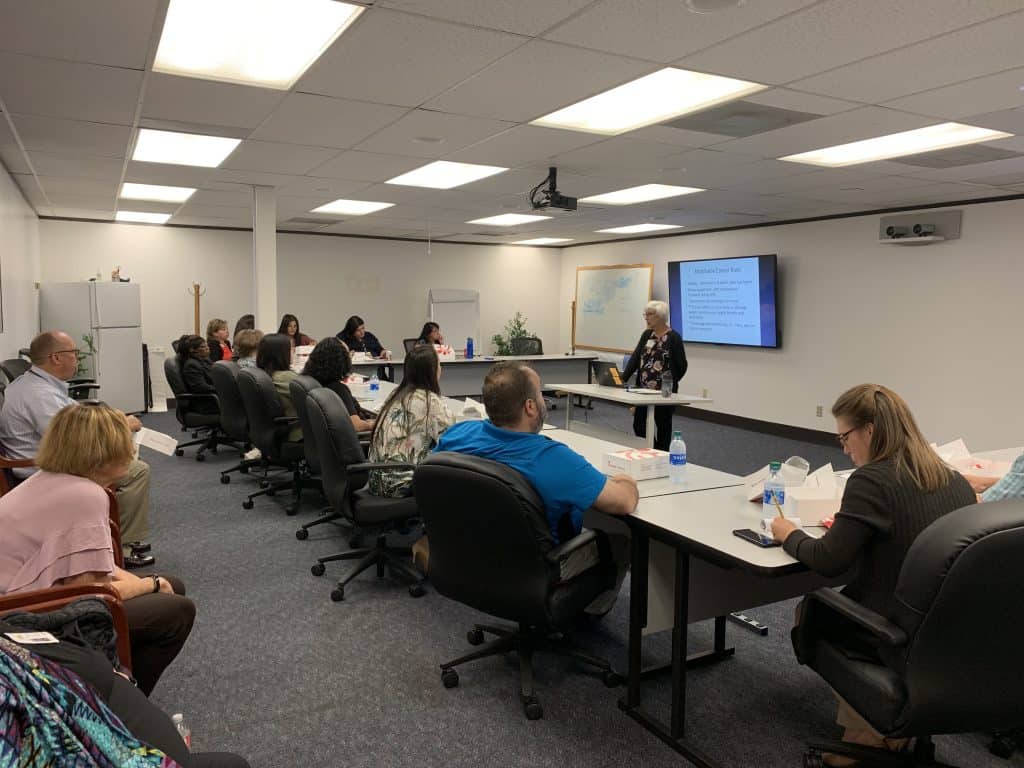
- Access to Health Education
Employees are empowered to gain control over their health in an accessible way. Bringing an educator or speaker to employees makes sure that all employees have equal access to receiving health education information that could be life-saving.
ABCF kept everyone up to date on the latest breast cancer treatment options with brochures, pamphlets, pens, flyers, posters, and other useful information that allowed employees to access, even after the session.
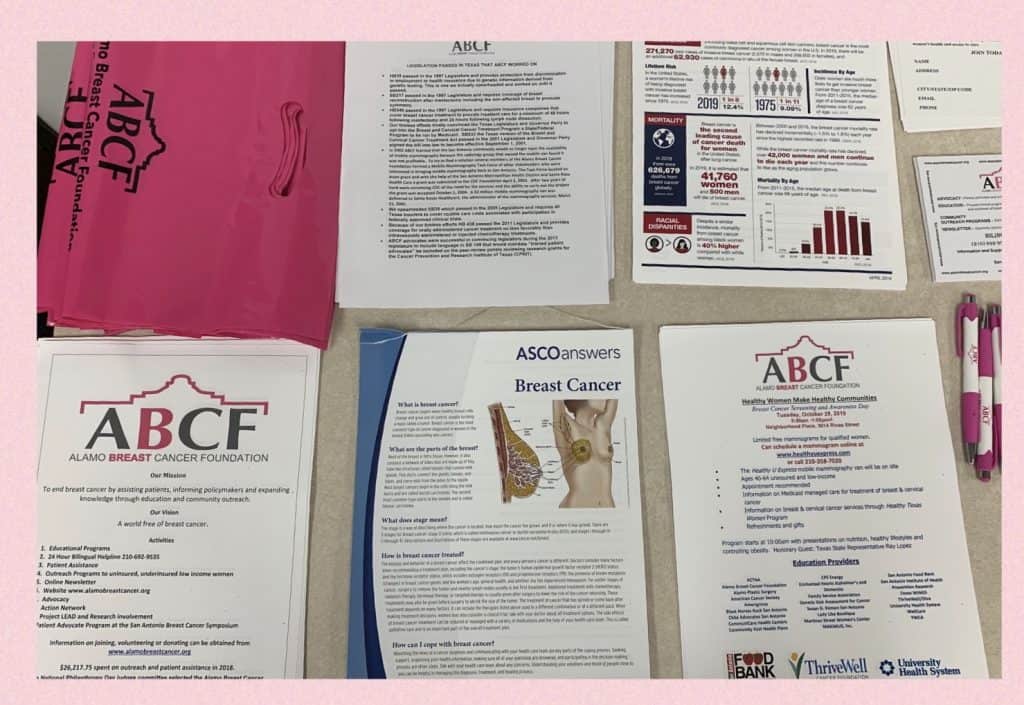
- Increased Worker Morale
Employers build trust with their employees by bringing in experts who deliver engaging presentations and contribute to dynamic, interactive dialogue. Darin Nielsen, the Vice President of Elbit Systems, also sat in attendance at the presentation. All employees learned about breast cancer in women and men, which often goes undetected in men, but employees were able to observe the Vice President attending an outreach program to learn more about health. The presence of senior staff is essential in establishing a sense of confidence and trust and is essential in building morale amongst staff.
At this Lunch n’ Learn, staff from Direct Med Clinic also attended the session. They were available before and after the Lunch n’ Learn to answer questions and offer sound advice to workers.
The Alamo Breast Cancer Foundation (ABCF) at Elbit Systems of America
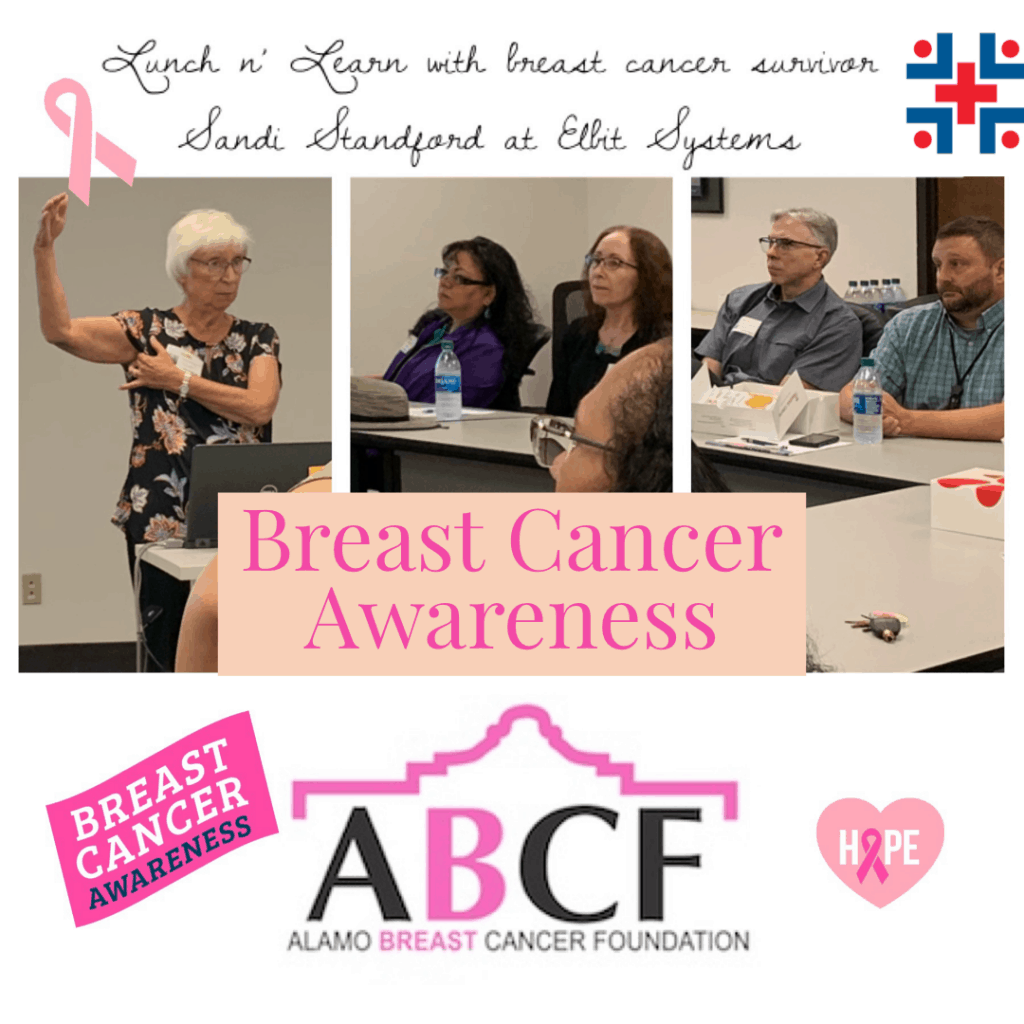
Direct Med Clinic brought the Alamo Breast Cancer Foundation to Elbit Systems of America to bring education and awareness to the employees for Breast Cancer Awareness Month.
Breast Cancer Awareness encompasses more than wearing a ribbon and a pink shirt. The Alamo Breast Cancer Foundation began in the dining room of Dale Eastman where she and other survivors realized during the 1990s that many of the treatment options had not changed since the 1970s and wanted to help women know more about prevention before having days to decide what to do about care. The Alamo Breast Cancer Foundation has the mission to end breast cancer by assisting patients, informing health professionals and policymakers, and expanding knowledge through education and community outreach.
As a survivor, Sandi Standford not only talked about the basic information of breast cancer, but the latest breast cancer treatment options, early detection, and nutritional information.
In her presentation, Standford arrested the attention of the audience by speaking of the staggering numbers on breast cancer, its disproportionate effect on Black women, as well as when to stop getting mammograms and pap smears.
Standford talked about basic breast information, breast cancer, modifiable cancer risks, and more.
What is Breast Cancer?
- Breast cancer is a disease in which normal cells in the breast begin to change, grow without control, and no longer die, forming a mass of cells called a tumor.
- A slow-growing tumor can take up to 10 years before it is detected.
Breast Cancer Information
- White women have higher rates of breast cancer than African-American women overall.
- The death rate in African-American women is higher than in white or Hispanic women.
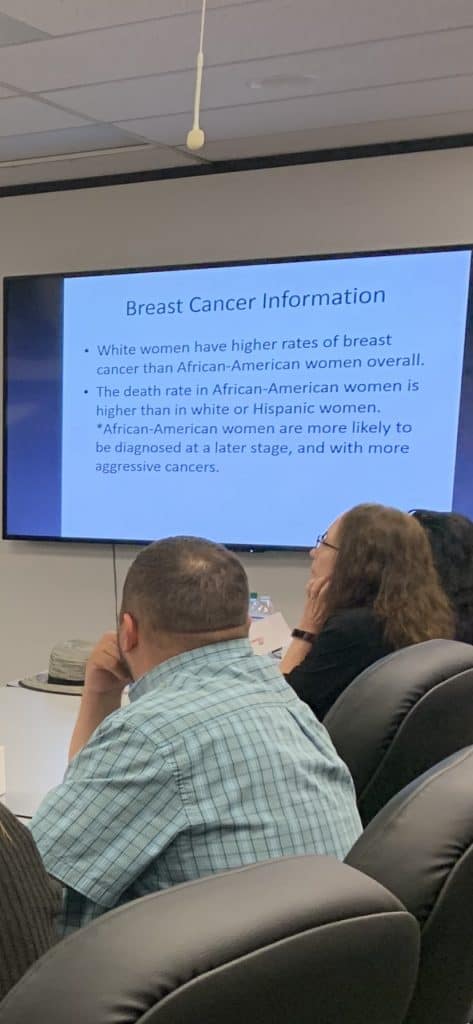
*African-American women are more likely to be diagnosed at a later stage, and with more aggressive cancers
Modifiable Cancer Risks
- Obesity – Recurrence and death rates are higher.
- Excess weight gain after menopause—increase risk by 40%
- Intervention by oncologist or nurse.
- Discuss what loss of as little as 3% body weight can help your health benefit and recurrence.
- Encourage self-monitoring, i.e., Diary, app on phone, computer.
- Consumption of alcohol, consuming one or more alcoholic drinks per day increases your risk (depending on what study you read!)
- High Fat Diet — Eating a heart-healthy diet with plenty of fruit and veggies will lower your risk of recurrence.
- Sedentary Lifestyle – walk, run, excesses will decrease your overall risk by 18%
- Having your first child after the age of 30
Sandi also answered such questions as:
At what age should a woman stop getting mammograms and Pap smears?
Sandi explained,
“A woman should stop receiving mammograms when she and her doctor decide it is time to stop. If you have many other diseases, your age, other health issues will be the determining factor. Or your own personal decision.”
The pamphlets were full of information about legislative issues that affect breast cancer patients and explain options for uninsured and underinsured individuals.
What Should I Do Now?
Rose Mary Grabow says, “Get to know the twins, Rosita and Lolita! Early detection leads to early intervention, which leads to better outcomes. Don’t get frightened or ignore it! Breast cells thrive when you ignore them!”
Sandford continues,
- Have your yearly exam
- Do your self-exam each month
- Know your family history
- Eat a well-balanced diet
- Exercise
- Know your body and when something doesn’t seem right
- Talk to your doctor about when is the right time to begin screening and when it is ok to stop.
Dale Eastman, founder and survivor of 28 years said, “It came back, but I’m so thankful because of breast cancer advocacy and how we have pushed research. We have drugs out there that I’m taking that don’t have the same side effect they did once before. So there is hope, we can go on with our lives a little longer.”
Direct Med Clinic is proud of the work the Alamo Breast Cancer Foundation does to keep women and men informed and aware of the truth about breast cancer. Thank you, women, for the strength and courage to stay pink.
If you would like to have a Lunch n’ Learn by Direct Med Clinic, or would like a breast cancer check, please contact our clinic for more information. 210-866-8031

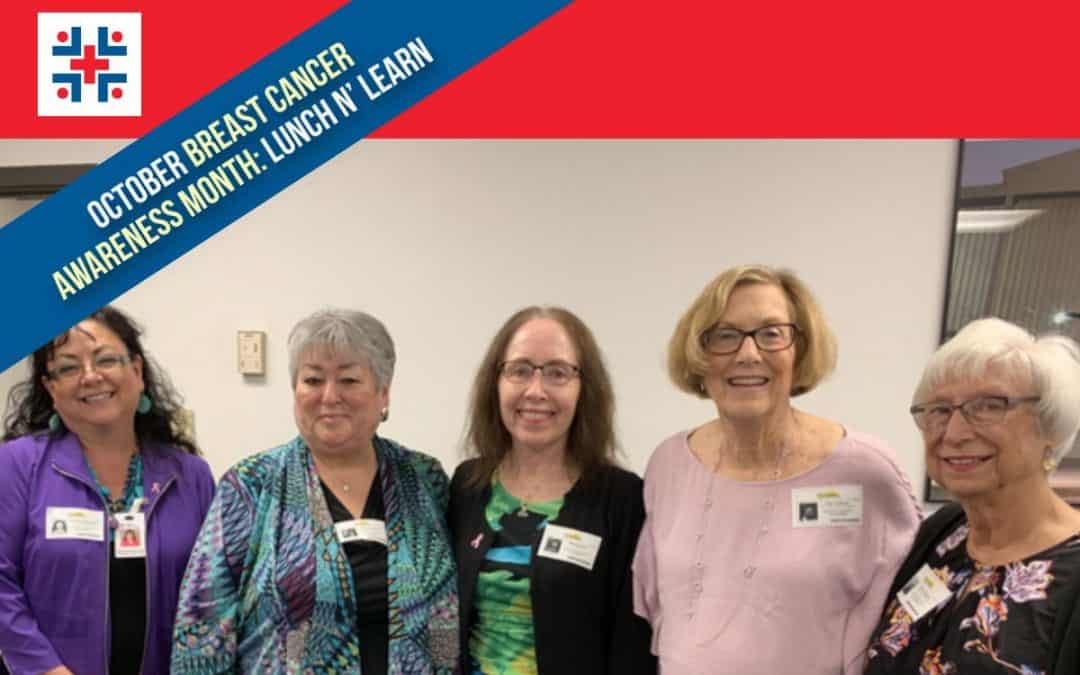
Recent Comments